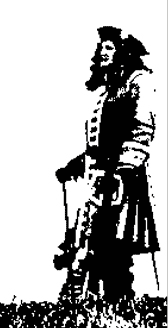The era Vauban lived in was decisive for the establishment of France’s borders. And Vauban himself took an active part in this. Towns such as Oudenaarde, Ieper, Tournai, Valenciennes and Dinant played an important strategic role. They are also examples of towns that were provided with the so-called Vauban fortifications. And they are also among the towns that scale-models were made of, the scale-model of Oudenaarde leaving France for this special occasion: the exhibition ‘Oudenaarde 1708: a town, a king, a general’.
Sébastien Le Prestre de Vauban was born in the French village of Saint-Léger-de Foucheret, which is now called Saint-Léger-Vauban in 1633. He died in 1707. So he never knew about the Battle of Oudenaarde, but his fortification of the town played an important strategic role.
Even as a child Sébastien, who belonged to the landed gentry, had a passion for the construction of fortresses. He excelled in mathematics and drawing and joined the army after his studies, at the age of 18. It was the beginning of a long and brilliant career as a soldier and a fortress builder. During this military career he laid 48 sieges, rebuilt more than one hundred fortified towns and designed some thirty new fortifications or citadels along the borders of France.
Thus Vauban spent a great deal of his life travelling. He went from city to city to inspect the fortifications or to take part in the military operations. While yearly covering thousands of kilometres on bad roads and under difficult circumstances he made notes and wrote his memoirs.
The defences of Vauban aimed at keeping the artillery as far away as possible from the principal ramparts of the town. For that purpose he developed fortifications in depth to make sure that the artillery only had a limited impact on the town. The scale-model of Oudenaarde clearly shows the typical jutting fortifications.

